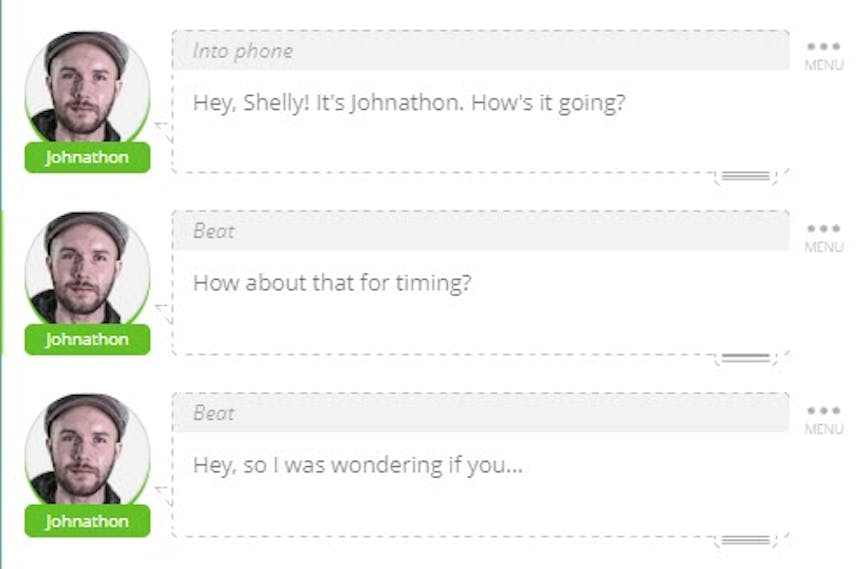With one click
Export a perfectly formatted traditional script.
There’s so much hard work that goes into your screenplay, and when you’re finally done, you want someone to SEE it! Easier said than done. “Someone” usually doesn’t include your friends and family members. They’ll tell you it’s great, and you won’t believe them. And rightfully so, because unless your friends know a thing or two about movie-making, they may not know how to spot a good script when they see one. Writing a screenplay is a journey, and the key to improving your writing is often rewriting. To get feedback, and determine where you fall in the pack, you’re going to need a subjective third party.
Export a perfectly formatted traditional script.


There is probably no simpler way to find eyes for your screenplay than to enter a contest (unless you’re one of those lucky people that knows people, of course!). And while all screenplay contests are not created equal, the result is usually the same - exposure.
“Anything that gets you exposure as a screenwriter, gets you read, and gets you feedback is a valuable endeavor,” Screenwriter and Author Doug Richardson told us.
Doug is the screenwriter behind movies including “Hostage” with Bruce Willis, “Die Hard 2,” “Bad Boys” with Martin Lawrence and Will Smith, and the Lucky Dey thriller series of books.
“Getting your screenplay into a competition and finding out where you are on the ladder, where you came in, did you win, did you not? That’s valuable feedback.”
“Exposure is extraordinarily important. And getting read is very important, whether it’s by a script consultant or someone who’s going to give you really honest feedback or a bunch of faceless judges in a screenplay competition,” he added.
So, where do you begin? First, understand the difference between screenwriting mentoring programs and fellowships and contests.
Submissions to mentoring programs should be treated more like a job application than a competition. Mentoring programs typically involve a small group of chosen writers (often TV writers) who are paired with executives to work on new material for the company that’s sponsoring the fellowship (i.e. HBO, Disney, Universal). They’ll also learn the ins and outs of the business, kind of like an internship. Sometimes these programs pay, and sometimes they don’t. Programs can last from a few weeks to a year or more, and successful fellowships often result in a permanent job or representation. Sometimes, it’s free to submit, as is the case with the Nickelodeon Writing Program and the Disney / ABC Writing Program.
Contests are almost always “pay to play,” with a few exceptions. And, you can pay more than the price of entry for extra stuff, like notes or scores on your script. If you win a prestigious and competitive contest, you could gain a massive amount of exposure. Plus, the laurel always looks great and adds to your credibility.
MovieBytes.com has a great list of top fellowships and contests. We asked Doug if he had any favorites, and he listed Nicholl Fellowship, Script Pipeline, PAGE Awards, Sundance Lab, and Slamdance, “aside from the best competition being that of getting your movie made,” he said.
Ah yes, that’s the hardest competition with the best prize of them all!
Let the competition begin,

